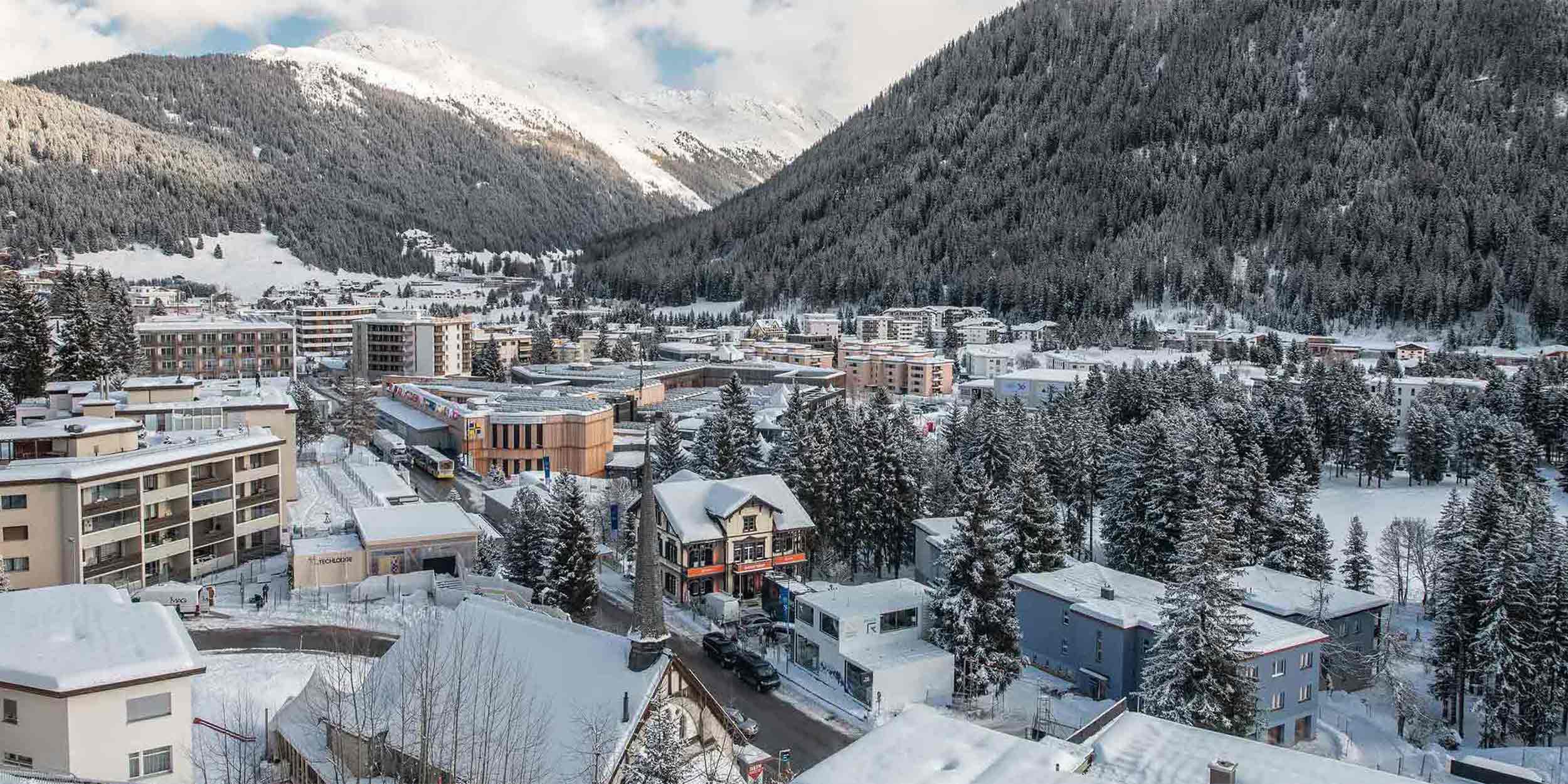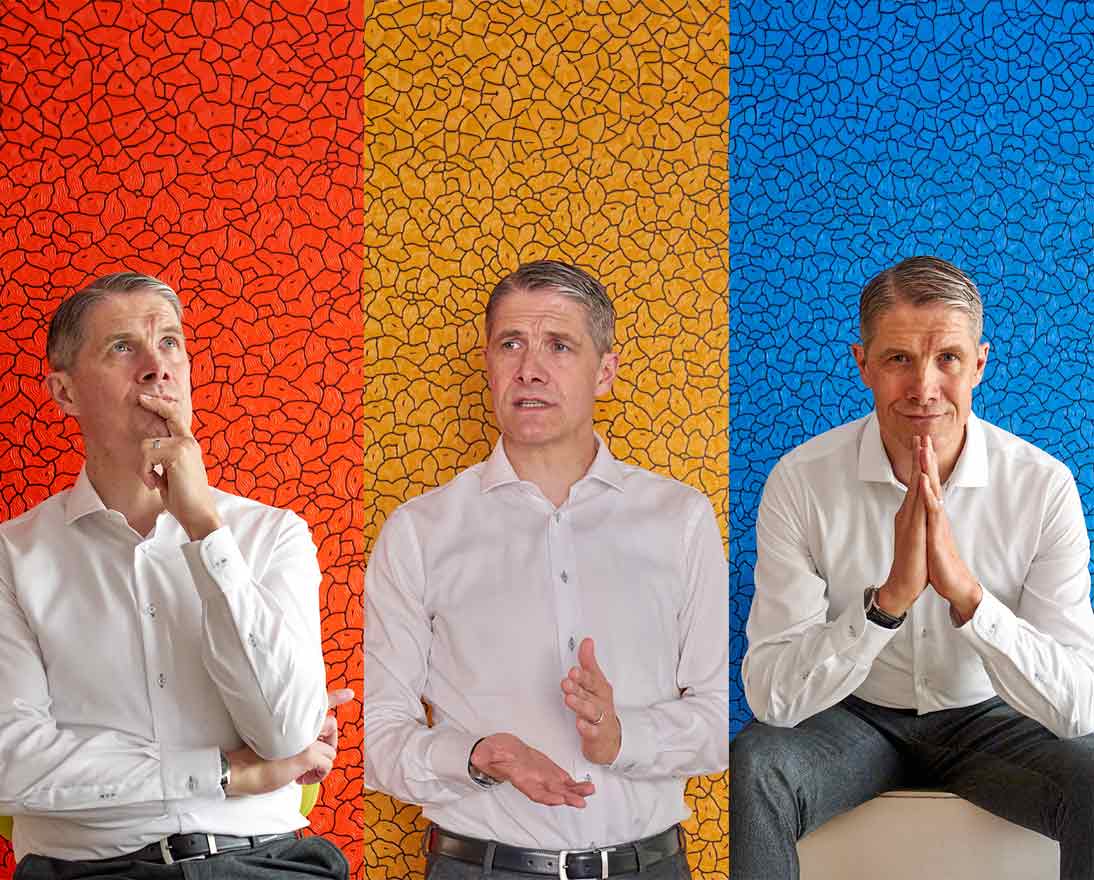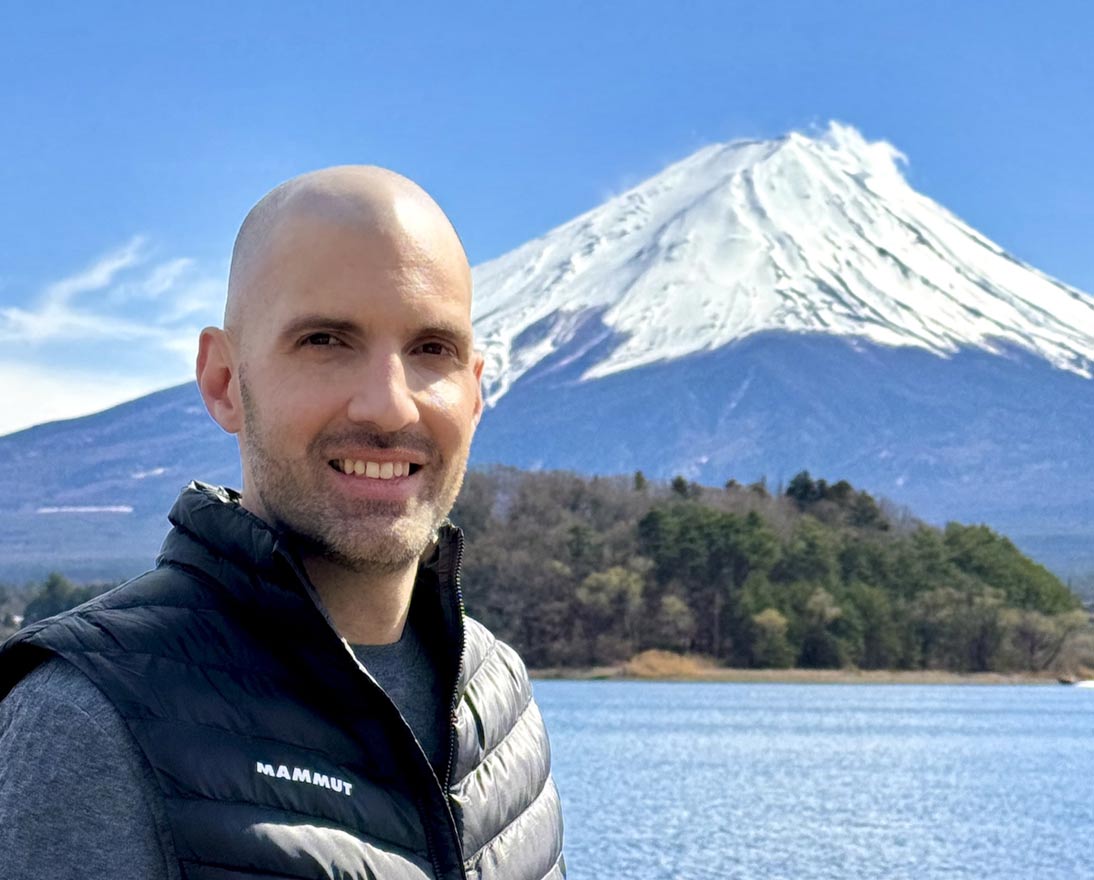What is Davos? An insider’s guide to the World Economic Forum’s Annual Meeting
SustainabilityArticleJanuary 8, 2025
As world leaders prepare to descend on Davos 2025, find out everything you need to know about the high-altitude gathering of decision-makers.
What do Donald Trump, Nelson Mandela, Bono and Greta Thunberg all have in common?
Not much, except that they’ve all been to Davos, Switzerland. Each January, famous – and infamous – global influencers from many different spheres rub shoulders with CEOs in the snowy Alpine town.
Since 1971, the World Economic Forum’s Annual Meeting in Davos has kicked off the year with a discussion on the challenges facing the world. But what’s the point of the Davos gathering? Who gets to go? Who runs the invite list? And why the blue bobble hats?
Read on to find the answers in our ultimate Davos cheat sheet.
Who goes to Davos?
Davos attendees include leaders from business, governments, civil society, faith groups, academia and the arts – as well as the global media. At Davos 2025, there will be representatives from over 100 governments, all major international organizations and about 1,000 of the most important global companies. They come together in a glammed-up conference hall to take part in a week of meetings about everything from climate change to cryptocurrencies.
Around 2,000 to 3,000 people are on the official invite list, though many more flock to fringe events, swelling the population of the resort town from its modest permanent base of around 11,000.
Others warm up with a hot drink at the café in the Zurich House. Zurich Insurance Group sends a small group of executives to Davos every year. And when not in a session, they can be found in their temporary Davos home.
Who’s running the show at Davos?
Arranging everything from the program to the plant-based canapés is the World Economic Forum, based on the other side of Switzerland in Geneva. The Forum is one of many international organizations in the French-speaking city, from the World Trade Organization to the International Committee of the Red Cross.
Beyond Davos, Forum staff work year-round on projects including the Global Gender Gap report, which quantifies the obstacles women face around the world.
Why go to Davos?
The World Economic Forum was founded on the principle of ‘multistakeholder theory.’ That’s an arcane term for the idea that businesses don’t operate in isolation and should serve all stakeholders – not just its shareholders – such as employees, suppliers and the communities they work in. This aligns with Zurich’s purpose and values and with the work the Z Zurich Foundation, a charitable foundation established by members of the Zurich Insurance Group.
This approach means that Davos is one of the rare places where you see global businesses leaders discussing everything from AI to inequality with union leaders, activists, policymakers and academics. There’s a spirit of dialogue that can broaden perspectives and even bring traditional adversaries together. It is also indisputably an efficient venue for networking, in a beautiful – if remote – setting.
What’s on the 2025 agenda at Davos?
Davos 2025 will be the 55th Annual Meeting and will run from January 20-24, 2025. This year’s theme is ’Collaboration for the Intelligent Age.’ The Intelligent Age is a term used by the World Economic Forum to describe the rapid advancements in artificial intelligence, quantum computing and blockchain. Expect discussions about the responsible use of data and on creating international frameworks for the governance of AI and emerging technologies.
But founder and chairman of the World Economic Forum, Klaus Schwab, considers the Intelligent Age to be a societal revolution, “that has the power to elevate humanity — or indeed to fracture it.” It’s why Schwab believes that alongside technological advances we need to develop environmental, social and geopolitical intelligence. Expect all three to be key topics.
Why is everyone wearing blue bobble hats at Davos?
It gets cold in Davos during January, so who better to protect you from the freezing temperatures than Zurich? Since 2017, Zurich has been dispensing blue knitted bobble hats from a hatch next to the Zurich House, near to the conference center. The exception was in 2023, when the hats were donated to people suffering war in Ukraine.
But for Davos 2025, the blue bobble hats are back! 5,000 of them to be precise. The elite and wealthy attendees seem unable to resist the lure of a free hat. But these aren’t your usual freebies. Zurich’s bobble hats have become a must-have status symbol that discreetly tell the world that you’re a member of the ‘Davos set.’ To ensure you don’t pick up a fake, just look for the subtle Zurich logo.
What has Davos ever done for the world?
As a gathering of the global elite, Davos often attracts protests about everything from the rapid globalization of the 1990s to the runaway climate change of this century.
The event can point its critics toward some solid achievements, however. As a peace broker, Davos helped to avert war between Greece and Turkey with the signing of the Davos Declaration in 1988. It was also in Davos that Gavi, the vaccine alliance, was launched in 2000. Gavi now helps to vaccinate nearly half the world’s children from deadly diseases and played a key role in delivering COVID-19 vaccines to vulnerable countries.
Why is it in Davos, anyway?
At an altitude of 1,560 meters, with ice-slicked streets and a long train ride to the nearest airport, Davos is not the most obvious location for a major international conference. Klaus Schwab originally chose Davos as a peaceful place to get perspective away from the daily challenges of running a business. The quiet valley is known as a retreat from the world, as captured in the German writer Thomas Mann’s account of life in a Davos tuberculosis sanatorium, The Magic Mountain.
These days, any magic created in Davos is captured and shared on social media. Tickets to the event may be hard to come by, but the World Economic Forum will livestream dozens of sessions, including the opening plenary.
Photo credits
Main image of Davos: World Economic Forum / Mattias Nutt
Photo of Greta Thunberg: World Economic Forum / Manuel Lopez



